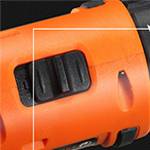loading...
- No. 9, Xingyuan South Street, Dongwaihuan Road, Zaoqiang County, Hengshui, Hebei, China
- admin@zjcomposites.com
- +86 15097380338
- Welcome to visit our website!
Exploring the Advantages of FRP Vessels in Modern Engineering Applications
Understanding FRP Vessels Advantages, Applications, and Future Trends
Fiber Reinforced Plastic (FRP) vessels have gained significant traction across various industries due to their unique properties and advantages over traditional materials. These vessels, primarily made from a polymer matrix reinforced with fibers, such as glass or carbon, are increasingly being utilized for storage and transportation of liquids and gases. In this article, we will explore the characteristics, advantages, applications, and future trends of FRP vessels.
Characteristics of FRP Vessels
FRP vessels are known for their excellent strength-to-weight ratio, corrosion resistance, and versatility in design. The primary materials used in their construction, such as epoxy, vinylester, and polyester resins combined with reinforcing fibers, provide a robust framework that can withstand harsh environmental conditions. This makes FRP vessels particularly suitable for chemical storage, water treatment, and other industrial applications where traditional materials like steel or aluminum would be prone to rust or degradation.
The manufacturing process of FRP vessels typically involves techniques such as filament winding, open molding, or resin transfer molding. These methods allow for precision and customization, resulting in vessels that can be tailored to meet specific requirements in terms of size, shape, and strength.
Advantages of FRP Vessels
One of the most significant advantages of FRP vessels is their corrosion resistance. Unlike metal vessels, which can corrode over time when exposed to moisture and chemicals, FRP vessels maintain their integrity and performance even in aggressive environments. This characteristic greatly reduces maintenance costs and enhances longevity, making them a valuable investment for industries handling corrosive substances.
Another advantage is their lightweight nature. FRP vessels are considerably lighter than their metal counterparts, which simplifies transportation and installation processes. This can lead to lower shipping costs and reduced labor requirements during installation, further enhancing overall cost-effectiveness.
Additionally, FRP vessels exhibit good thermal insulation properties, which can be beneficial in applications where temperature control is critical. The ability to manufacture these vessels in a variety of colors and finishes also allows for aesthetic customization, making them ideal for use in visible locations.
frp vessels

Applications of FRP Vessels
FRP vessels find applications in a wide range of industries, including chemical processing, water treatment, oil and gas, and waste management. In the chemical industry, they are frequently used for the storage of acids, alkalis, and other corrosive materials. Their ability to withstand extreme temperatures and pressures also makes them suitable for high-performance applications such as pressure vessels and reactors.
In the water treatment sector, FRP vessels are commonly utilized for filtration systems and chemical dosing due to their resistance to corrosion and scaling. The oil and gas industry uses FRP vessels for various applications, including storage tanks and separators, where durability and safety are paramount.
Another burgeoning application area is in the renewable energy sector, specifically in the construction of wind turbine blades and other components where lightweight and strength are crucial.
Future Trends
As industries continue to push for sustainable and environmentally friendly solutions, the demand for FRP vessels is likely to grow. Innovations in material science, such as the development of bio-based resins and improved recycling processes for FRP, are expected to enhance the sustainability of these vessels further.
Moreover, advancements in manufacturing technologies, including automation and 3D printing, will enable more efficient production processes and lower costs. This could lead to wider adoption of FRP vessels in emerging markets and new applications.
In conclusion, FRP vessels represent a significant advancement in material technology, offering numerous advantages over traditional storage and transportation solutions. Their unique properties, coupled with a growing range of applications and ongoing innovations, make them a compelling choice for industries seeking reliable, cost-effective, and sustainable solutions. As research and development continue to evolve, the future of FRP vessels looks promising, paving the way for even greater utilization across various sectors.
-
The Rise of FRP Profiles: Strong, Lightweight, and Built to LastNewsJul.14,2025
-
SMC Panel Tanks: A Modern Water Storage Solution for All EnvironmentsNewsJul.14,2025
-
GRP Grating: A Modern Solution for Safe and Durable Access SystemsNewsJul.14,2025
-
Galvanized Steel Water Tanks: Durable, Reliable, and Ready for UseNewsJul.14,2025
-
FRP Mini Mesh Grating: The Safer, Smarter Flooring SolutionNewsJul.14,2025
-
Exploring FRP Vessels: Durable Solutions for Modern Fluid HandlingNewsJul.14,2025
-
GRP Structures: The Future of Lightweight, High-Performance EngineeringNewsJun.20,2025
